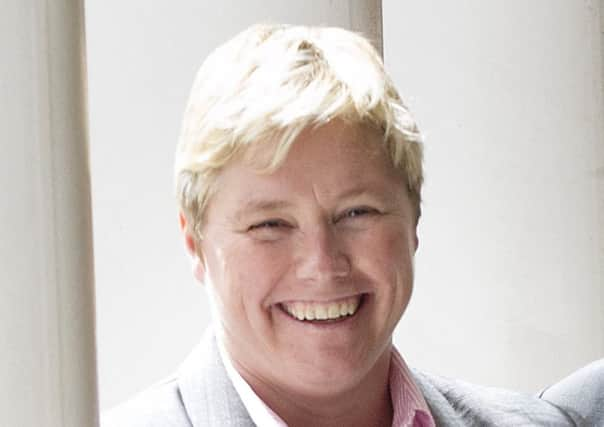Data Lab to double size of master's degree programme


Gillian Docherty, who is marking her first year as chief executive of the Data Lab, said more than 70 per cent of the initial cohort of MSc students have secured industry placements, and the centre has now received European funding to provide a further 50 places.
The MSc courses were launched last year through a collaboration with Aberdeen’s Robert Gordon University and Dundee and Stirling universities, with 40 sponsored places available to candidates.
Advertisement
Hide AdAdvertisement
Hide AdJoining the initial tranche of higher education establishments in offering courses in big data and related fields are Glasgow Caledonian University, University of Glasgow, University of Strathclyde Business School and the University of the West of Scotland.
“Our cohort for this year will be 90-strong, which is just fantastic,” said Docherty, the former leader of IBM’s software business north of the Border.
She added: “We’ve seen increasing engagement from SMEs and established organisations who may not be tech businesses but understand that data can have an impact. The hurdle is probably the demand from industry for the capabilities on offer; it’s increasing across the board, which I think is a fantastic opportunity, but Scotland needs to keep pace with that and continue being able to help organisations.”
Earlier this year, Data Lab co-hosted an event in Edinburgh that brought together more than 250 aspiring data scientists with employers and universities, and a survey to coincide with the Data Talent Scotland gathering found only 7 per cent of students were motivated by salary alone – with the remainder attracted to challenging roles that offer a good work-life balance and support through training.
Docherty said: “With the economic potential of data estimated to be worth £17 billion to Scotland, it is imperative we addresses the critical shortage in digital and data skills to help extract this value. Investment in education is key and by educating new digitally literate generations now we enhance our pipeline of talent the future.
“But it doesn’t stop at education. Collaboration between academia and industry is a critical driver in generating inward investment to Scotland. This is something the Data Lab is helping to enable between industry and academia. These partnerships not only lead to innovative solutions for industry but help to retain our home grown talent.”
The four sectors seeing the biggest rise in demand for data scientists are finance, energy, digital technologies and healthcare, but Docherty said that opportunities were available in every sector of business.
One of the projects it has backed saw Edinburgh-based legal software start-up Amiqus receive £35,000 worth of academic time from the computer science and law departments of Strathclyde University to develop a prototype aimed at providing consumers and SMEs with an affordable alternative to going to court. With 1 million cases going unresolved
Advertisement
Hide AdAdvertisement
Hide Ad“Levels of demand may be different, but data is now being exploited in tourism and all aspects of public services – there is no industry that escapes it,” Docherty said.
Data Lab has hubs in Aberdeen, Edinburgh and Glasgow, but is involved in projects across the whole country.
It recently launched an engineering doctorate with the University of St Andrews, which has attracted strong-than-expected interest from industry. Participants will spend 75 per cent of their time working on real-world problems, with the remainder in a taught environment.
The innovation centre is funding 50 per cent of the programme, with the rest coming from industry partners, and the first students are due to start in September.
Docherty said that Data Lab has also approved a number of projects working with organisations in the oil and gas sector, as the energy industry seeks to adapt to the low oil price environment by cutting costs through the use of new technologies.
“We hope to progress with more over the coming year. We’ve absolutely seen a demand for data to drive innovation in this arena.”
